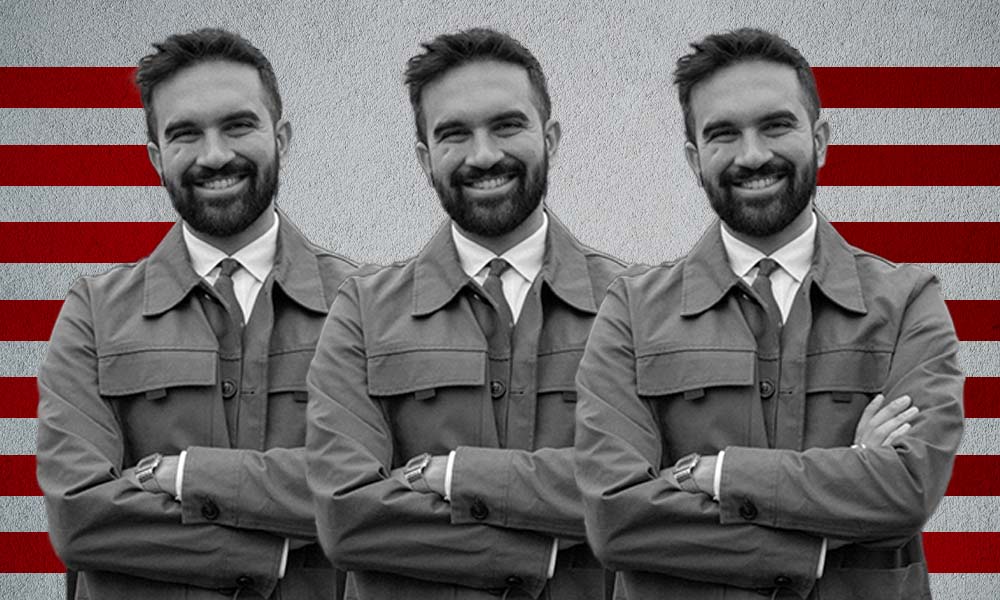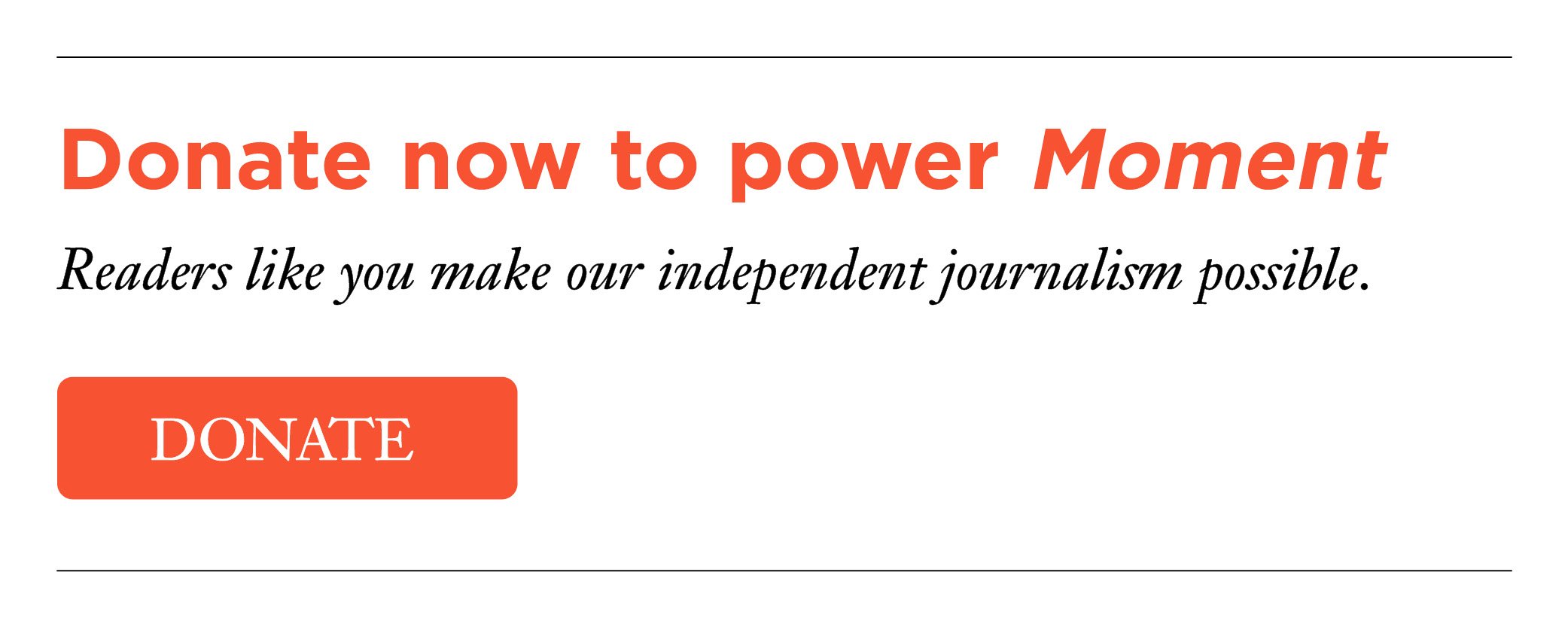
Jewish Politics & Power is published every other week. Sign up for our newsletter for updates.
1. What Do Israeli New Yorkers Think?
With nearly a million Jews, New York is the biggest Jewish city in the world. This number includes tens of thousands of Israeli transplants. Some came to the Big Apple following business ventures, others to advance their academic or artistic careers, some joined families in the city’s large ultra-Orthodox community, and many simply relocated to New York for the same reason everyone else does: excitement, opportunity and endless possibility.
On a bright Wednesday morning last week, a group of Israeli businessmen and women made their way onto the New York Stock Exchange trading floor. It was a special day for Israeli businesses in the city: Israeli Mapped in NY (IMNY), which helps Israel tech firms and startups, had the honor of ringing Wall Street’s opening bell, and its CEO, Guy Franklin, invited dozens of his colleagues to the celebration.
“There is some fear within the Israeli community of a Zohran Mamdani victory and how it will impact the growing Israeli industry,” he told me minutes after ringing the bell. “We were used to getting support from the mayor’s office, and our concern is that it will diminish and that we will no longer be a top priority.” Franklin’s concern echoes that of many Israeli tech and real estate entrepreneurs who fear that their identification as Israelis will turn, all at once, from an asset to a liability.
Anat Patishi, a real estate businesswoman who rushed out after the Wall Street event to her nearby polling station to cast an early vote for Andrew Cuomo, sounded way more worried. “It really scares me,” she said about the prospect of Mamdani becoming her mayor. “I’m afraid for my personal safety as an Israeli. I will even be afraid to speak Hebrew on the subway.”
But these are far from being the only views on Zohran Mamdani among Israeli Americans living and voting in New York.
Mookie Kayam, a retired New York City employee, doesn’t get the fear of Mamdani felt by fellow Israelis in the city. “They are making a grave mistake,” he says. Kayam, who voted for Mamdani, disputes the claim that the Democratic candidate hates Israel; he agrees with Mamdani’s views on the Gaza war. He called on his fellow expats to calm down. “No one hates you. If you don’t agree with him, tell him why, don’t defame him and don’t call him antisemitic. To say he hates Jews because he’s Muslim is so wrong and so dangerous.”
Two Jews, three opinions, as the old joke goes. The New York mayoral election makes it clear that neither Jewish Americans nor Israeli Americans can agree about what it means to be pro-Israel or anti-Israel. In fact, this one seemingly local election has only deepened the chasm.
Justin, a Long Island resident in his 20s, voted for Mamdani as soon as early voting opened. On Sunday he volunteered outside a Manhattan polling station, reaching out to voters for a final pitch for his candidate before they cast their votes. Most were appreciative and proudly announced that they are indeed in the Mamdani camp. One woman angrily muttered: “I’ll never vote for that guy.”
Justin, who did not want to give his full name, said he fully supports Mamdani’s views on “the apartheid state,” but made it clear that’s not why he supports him. “He’s not running to be the mayor of Tel Aviv,” he said.
A few days earlier, at another polling station, another voter, Steve Bois, said he voted for Mamdani because he wants generational change and because he “can’t stomach Cuomo.” And what about his views on Israel? “His views are complex and interesting and we have to come up with some new solutions for this intractable situation because we can’t keep going down the road we’ve gone down because it’s not working,” he answered. Another voter who identified herself only by her first name, Sheryl, admitted she was hesitant, but still voted for Mamdani. “I think his past brings up a lot of questions for New York, being a city with such a big Jewish population,” she said.
Bottom line: you’d be hard pressed to find single-issue Mamdani voters whose issue is Israel. That said, there may, however, be many on the other side who are voting for Cuomo because their single issue is Israel and their single goal is to make sure Mamdani doesn’t get elected.
Rabbi Angela Buchdahl is arguably one of the most influential and well- known rabbinical figures in New York. The senior rabbi of New York’s Central Synagogue, Buchdahl did not join a letter signed by 1,000 rabbis opposing Mamdani, claiming she does not want to mix “church and state” and get involved in political endorsements. But last weekend, during her Friday sermon, she spoke out, and in a very powerful way. Buchdahl argued that Mamdani’s rhetoric “has contributed to a mainstreaming of some of the most abhorrent antisemitism.” What seems to have made the difference for Rabbi Buchdahl was a recently surfaced 2023 video clip in which Mamdani stated that “when the boot of the NYPD is on your neck, it’s been laced by the IDF.” This statement, Buchdahl said in her sermon, “crosses the line clearly into antisemitism—not only demonizing Israelis but echoing the age-old antisemitic trope that Jews across the world are the root cause of our problems here.”
Buchdahl is not the first rabbi whose support Mamdani has lost, but her words, as well as those of other liberal-leaning Reform rabbis, should raise concern. Zohran Mamdani, despite having the time and access, failed to convince a majority of Jewish supporters who are usually the core of the Democratic base. He’s on his way to winning the New York election anyway, but going forward, Mamdani has a lot of explaining and patching-up of relations to do if he wants to run the most Jewish city in the world and keep the momentum of his meteoric political ascent.
Politically speaking, Mamdani can register real success in some of his outreach efforts to the Jewish community, primarily in winning the ultra-Orthodox community.
On Sunday, as reported by The Forward, Mamdani made his way to Brooklyn and won the endorsement of the Aharonim faction of the Satmar Hasidic community. True, the move did trigger some backlash and led other leaders of the sect to distance themselves from the endorsement, but still it illustrated the focused effort by Mamdani’s campaign to understand the Haredi community and win over its vote—to a great extent by ignoring the thorny issue of Israel, which many in the ultra-Orthodox community don’t care about as deeply as other American Jews do.
It’s a tactical win that won’t make Mamdani any more popular in the broader Jewish community, but could land him tens of thousands of votes from devout Hasidic Jews who follow their rabbis’ lead when it comes to electoral politics.
5. An Organized Campaign Against Curtis Sliwa?
Curtis Sliwa, the red-beret-clad New York icon, knows he stands no chance of becoming the city’s next mayor. It’s tough being a Republican in one of the bluest cities in America, even if many view him fondly.
Polling at about 15 percent, Sliwa has been a constant target for members of the anti-Mamdani movement who believed that if he dropped out, his supporters would vote for Cuomo, giving the latter a fighting chance.
Although polling suggested that this was not the case, attempts to remove Sliwa from the ballot were unceasing.
Some in his campaign have argued recently that a lot of the pressure has been coming from Jewish donors bent on blocking Mamdani at all cost. They even claim they noticed an organized email campaign originating in Israel calling on Sliwa to drop out.
There’s nothing illegal here. Just a sign of how desperate the anti-Mamdani campaign has become.



